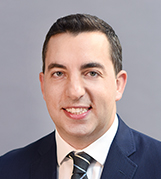Kobre & Kim's Cross-Border Team
How Israeli, Middle Eastern and African Individuals Should Respond to Criminal Allegations from Foreign Governments
As U.S. and other Western enforcement agencies aggressively step up cross-border actions, Israeli and other Middle Eastern and African nationals are increasingly in the crosshairs, often over what can be overstated allegations. We explain how those targeted should push back and correct the record to protect their assets, reputation and liberty.
Israeli and other Middle Eastern and African nationals have been scrutinized and prosecuted by U.S. and other Western enforcement agencies, such as the U.S. Department of Justice (DOJ). Many of these agencies have recently redoubled their efforts to aggressively pursue cross-border actions against high-net-worth individuals (HNWIs), putting their liberty, assets and reputation at risk over what – in many cases – can be overstated allegations.
Countries like Israel are likely to work closely with the U.S.; requests from Israeli authorities may ultimately be on behalf of their U.S. counterparts. If an HNWI is not adequately prepared, these accusations can rapidly spiral into global asset freezes and seizures, INTERPOL Red Notices and extradition requests, financial sanctions, and even arrest and trial. One viable strategy for HNWIs who come under government scrutiny, particularly where the accusations do not accurately capture the facts, can be to stand up and push back as early as possible.
- Get the Facts Straight. When prosecutors try to target individuals and conduct from outside their immediate jurisdiction, there is a risk they can misinterpret facts and make faulty assumptions. At-risk HNWIs and their advisors should proactively prepare a factual narrative to set the story straight: for example, these can include copies of contracts and transaction records, evidence that wealth was earned through lawful business activity, and documentation that certain key assets were purchased using clean and traceable funds.
- Correct the Record. This factual narrative can be most effective if used strategically. HNWIs should inform investigators of any misinterpretations as soon as possible. In some cases, outreach to other government bodies, international human rights groups and the press can further assist in correcting the factual record. Parallel legal proceedings in other jurisdictions to obtain court decisions affirming the legitimacy of offshore trusts and other asset structures can also be favorable additions to the record and further protect a HNWI.
- Be Proactive. If prosecutors fail to recognize their oversights, HNWIs should anticipate potential escalatory actions and prepare accordingly. For example, HNWIs who travel should have counsel with relevant cross-border expertise on standby in the event of searches, questioning, or even arrests when crossing borders.
As the DOJ and other global agencies aggressively ramp up their cross-border enforcement efforts, Israeli, Middle Eastern and African high-net-worth individuals potentially risk having their liberty, assets and reputations come under threat over possible misunderstandings and misinterpretations by Western prosecutors. A pre-emptive multijurisdictional strategy, grounded by an on-the-ground team of former Western government lawyers, can make the biggest difference in helping at-risk targets protect themselves.
About Kobre & Kim
Kobre & Kim is a global law firm that focuses on cross-border disputes and investigations, often involving fraud and misconduct.
To preserve the assets, liberty and reputation of UHNWIs with global business interests, our firm:
- Provides offensive and defensive cross-border litigation and crisis management strategies in court and out of court;
- Brings together over a dozen former U.S. and UK government lawyers in Israel, Dubai, EMEA, Asia, Latin America and the U.S., including former prosecutors from the U.S. Department of Justice (DOJ) and UK Serious Fraud Office (SFO);
- Has deep experience with global foreign policy, national security and economic controls and regularly interfaces with regulatory agencies that impose these controls.





